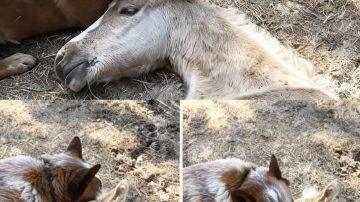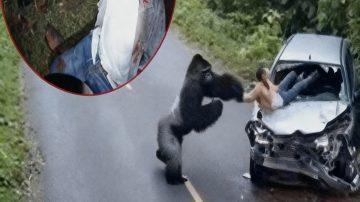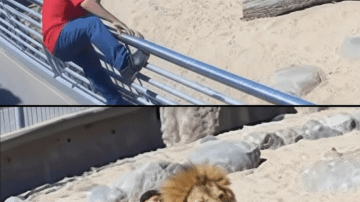The dense forests of the Pacific Northwest are no stranger to the rhythmic hum of chainsaws and the resolute will of the logging industry. Yet, even in this world of industry and profit, nature sometimes presents a challenge that transcends mere economics. Such was the case for veteran logger, Elias Thorne, a man whose hands were as calloused as his heart was unexpectedly tender. One crisp autumn morning, deep within a section slated for immediate felling, Elias stumbled upon a hidden den. Inside, a mother bear and her tiny, vulnerable cub. Knowing the fate that awaited them, Elias did the unthinkable: he appealed to his company, “Timberline Solutions,” to spare the area. To everyone’s astonishment, they agreed, granting a temporary reprieve that lasted nearly a year. This small victory, however, was merely the calm before a storm of unforeseen events that would test Elias’s resolve and ultimately redefine his life.


Just as Elias began to hope for a permanent solution, the corporate tides turned. A new quarterly report, citing unforeseen market pressures and ambitious growth targets, swiftly overturned Timberline Solutions’ earlier concession. The machines rolled in with brutal efficiency, their metallic roars echoing through the once-quiet forest, a stark declaration that profit had, indeed, won over mercy. Elias watched with a heavy heart as the trees around the den fell, praying the bears had found refuge elsewhere. But then came the unexpected and heartbreaking twist: days after the logging commenced, the mother bear vanished, leaving her cub—far too young to survive alone—bereft and increasingly desperate.

Faced with this tragic development, Elias found himself at a crossroads. Every company policy, every rule regarding wildlife interaction, screamed against intervention. Yet, the image of the starving cub haunted him, gnawing at his conscience. In a daring act of defiance, he began a clandestine mission. Each day, after his shift ended, Elias would return to the den, leaving a carefully chosen assortment of food—fresh fish, wild berries, scraps from his own lunch—always keeping a respectful distance, but never wavering in his compassionate commitment. This secret ritual continued for weeks, a silent pact between man and cub, until another twist of fate intervened.

Unbeknownst to Elias, a wildlife photographer on assignment to document the impact of logging operations had been observing the area. One particularly rainy afternoon, as Elias knelt, leaving food for the now slightly stronger cub, the photographer captured the poignant moment. The image, depicting a gruff logger in a hard hat and safety vest, gently tending to a wild animal in the rain, was immediately iconic. Within days, it had spread across the globe, emblazoned with the caption: “The Logger Who Fed a Starving Bear.” Elias Thorne, a man who sought only to quietly do good, was thrust into an unexpected international spotlight, a twist that would soon bring both admiration and severe consequences.

Within days of the photograph’s viral explosion, the other shoe dropped. Timberline Solutions, under pressure from both animal rights groups praising Elias and internal legal teams concerned about liability and policy breaches, had to act. Elias was called into the regional manager’s office, where he was formally terminated for “interfering with wildlife” and creating a “PR nightmare.” The manager, a man Elias had worked under for years, avoided his gaze. Elias’s response, however, was not one of anger or regret, but of quiet conviction: “I’d rather lose my job than watch a baby starve.” This defiant statement, immediately leaked to the press by a sympathetic coworker, solidified his image as a compassionate hero, adding yet another layer to his complex and evolving story.

Even amidst the turmoil, the cub’s plight was not forgotten. Thanks to the international attention sparked by Elias’s actions and the photographer’s image, wildlife rescue organizations intervened. The cub, now strong enough to be safely transported, was taken to a specialized sanctuary, where it would receive the care it needed to thrive. As for Elias, the immediate aftermath of his firing was uncertain. He lost his stable job, his routine shattered. Yet, the overwhelming public support, the countless messages of gratitude, and the undeniable success of his defiance proved to be a far greater reward. Elias Thorne, the logger who prioritized life over livelihood, had gained something invaluable: proof that kindness is stronger than policy, and that sometimes, the greatest twists of fate lead to the most profound triumphs of the human spirit.






